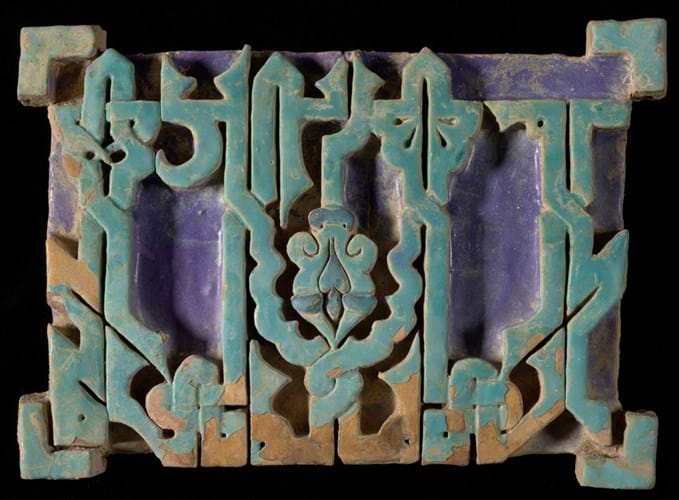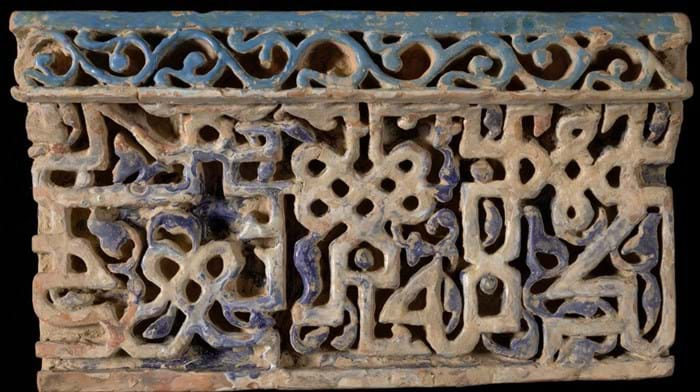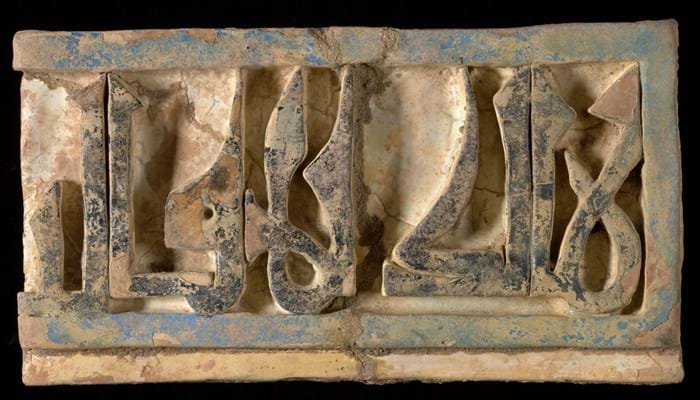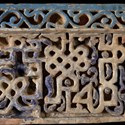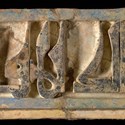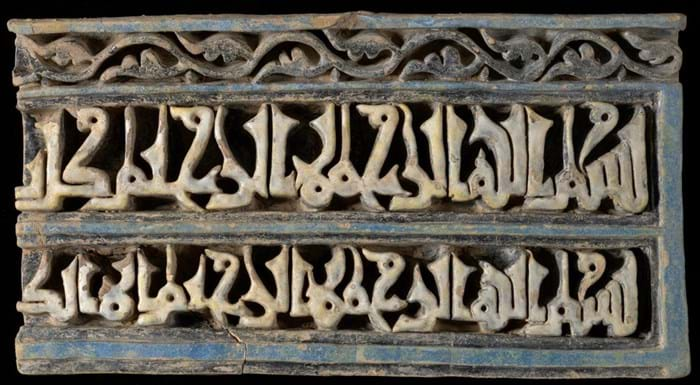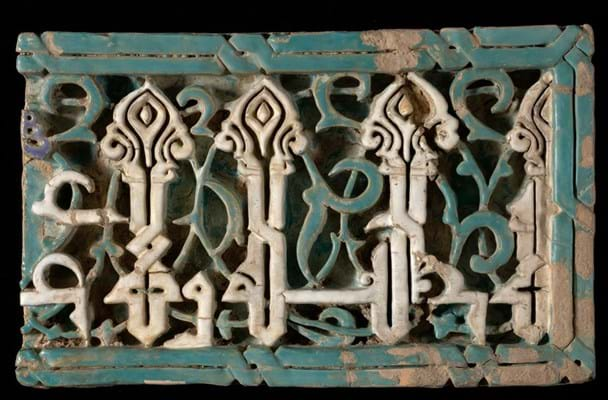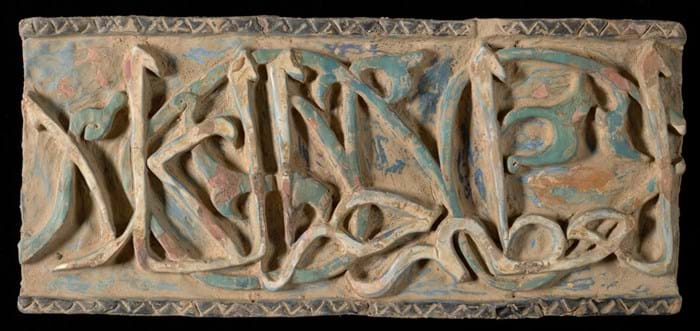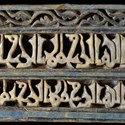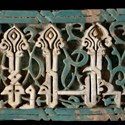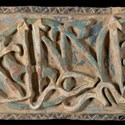They were seized at Heathrow airport by UK Border Force officers earlier this year and after investigations by the British Museum they will now be sent back to Uzbekistan.
The museum believes the tiles are from Transoxiana, a region in present-day Uzbekistan, but which included parts of neighbouring Tajikistan, southern Kyrgyzstan and south-west Kazakhstan.
There are many specialists covering this region so the museum sought advice from colleagues across seven countries to understand exactly where they could have originated from.
Some or all of the six tiles are now thought to have come from the Shah-i Zinda memorial complex near Samarkand. The site was excavated from 1996-2000 but a number of the glazed artefacts found in the excavations are unaccounted for.
The complex flourished in the 11th-12th and 14th-15th centuries when the neighbouring city of Samarkand was at its peak. In 1220 Samarkand was destroyed by the Mongols but, after a period of desertion and ruin, a second group of mausolea was founded. The tiles date from this phase.
The tiles were seized at Heathrow in January when a passenger arriving on a flight from Dubai was detained on entry following their discovery.
They had been declared on accompanying paperwork to be replicas ‘made to look old’ and were reported to have been purchased in Sharjah, UAE the previous day for 315DH (around £70).
However, a Border Force officer was not satisfied about the age of the items and sought verification. The British Museum was contacted in May and within a week, despite the coronavirus restrictions, submitted a report to Border Force. The importer of the tiles failed to make a claim and they were forfeited.
The Ministry of Culture in Uzbekistan has agreed that the museum can display the tiles for a short period before they are returned and they will be on display from December this year.
Dr Hartwig Fischer, director at The British Museum, said: “The identification of illicitly traded cultural objects is a very important part of the museum's work. Over the past decade we have helped to return more than 2500 objects to Iraq, Afghanistan, Uzbekistan and elsewhere.”
Said Rustamov, Uzbekistan ambassador, said: “The return of antiquities is evidence of a strengthening Uzbek-British relations… Our close cooperation will send a strong signal to antiquity traffickers.”


